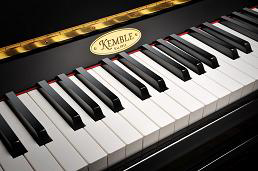What to Expect at a Music Theory Exam
If you’re heading for your music theory exam, your head is probably bursting with scales, terminology and everything else you’ve crammed it with while you have been studying. Music theory exams require a pass mark of 66 per cent or above, so you will need thorough knowledge to succeed.
You can give yourself the best chance of passing by making sure you’re as fully prepared for the exam as you can be, and part of that is knowing what is in store.
Preparation is key

Preparing for piano exams
You can give your chances a real boost by arriving at the exam centre in good time – ten minutes is the minimum. You will need to confirm your name to the examiner, after which you can spend the remaining time focusing.
Once you enter the room, read the paper before you start. This can help you to relax. Try not to rush, as most students find there’s plenty of time.
Make sure you have followed the syllabus
Music theory exams are set by the Associated Board of the Royal Schools of Music, or ABRSM. You can find plenty of syllabus information on its website.
In your grade 1 exam, you will be expected to show knowledge of notation basics, time signatures (simple and compound), major keys and scales, and rhythm writing.
As you approach Grade 8, you’ll be expected increased harmonic vocabulary and modulation, score reading and styles.
Read through the syllabus in detail and make sure you have a good understanding of all the topics covered at your grade, and try not to worry about more advanced topics. If any topic causes you difficulty, practice is the best way to overcome it. Make sure your tutor knows about your pain points so you can invest more time in practising the theory elements you find more challenging.
Effective exam technique comes from understanding the concepts involved, not just practising them. Even at the lower grades, you will be expected to think on your feet and compose melodies or rhythms from scratch.
Some hints and tips to help you
- Make sure you arrive for your exam with pens, pencils, a ruler, an eraser and a pencil sharpener.
- You will be provided with manuscript paper on the day for rough working. Your examiner won’t mark you on your notes.
- Write as neatly as possible, and try to work very precisely. You may lose marks if your work is shoddy, as the person marking the paper may not be able to clearly identify your answers. You will inevitably make mistakes, so make sure you have a good eraser that won’t mark the page.
- Work with care. There’s plenty of time. If you do finish early, use the remaining time to thoroughly check your answers, particularly notation you have written.
Prepare and relax
Very few people actively enjoy taking exams, as there is always pressure placed on us to succeed – and sometimes not just from ourselves. The best way to succeed is by preparing well so that you are less nervous on the day. The nature of music theory exams means that they are challenging. Sometimes, music theory is more difficult than practical exams themselves. However, the thrill of passing one will prove your knowledge and progress as you learn to master the piano.

